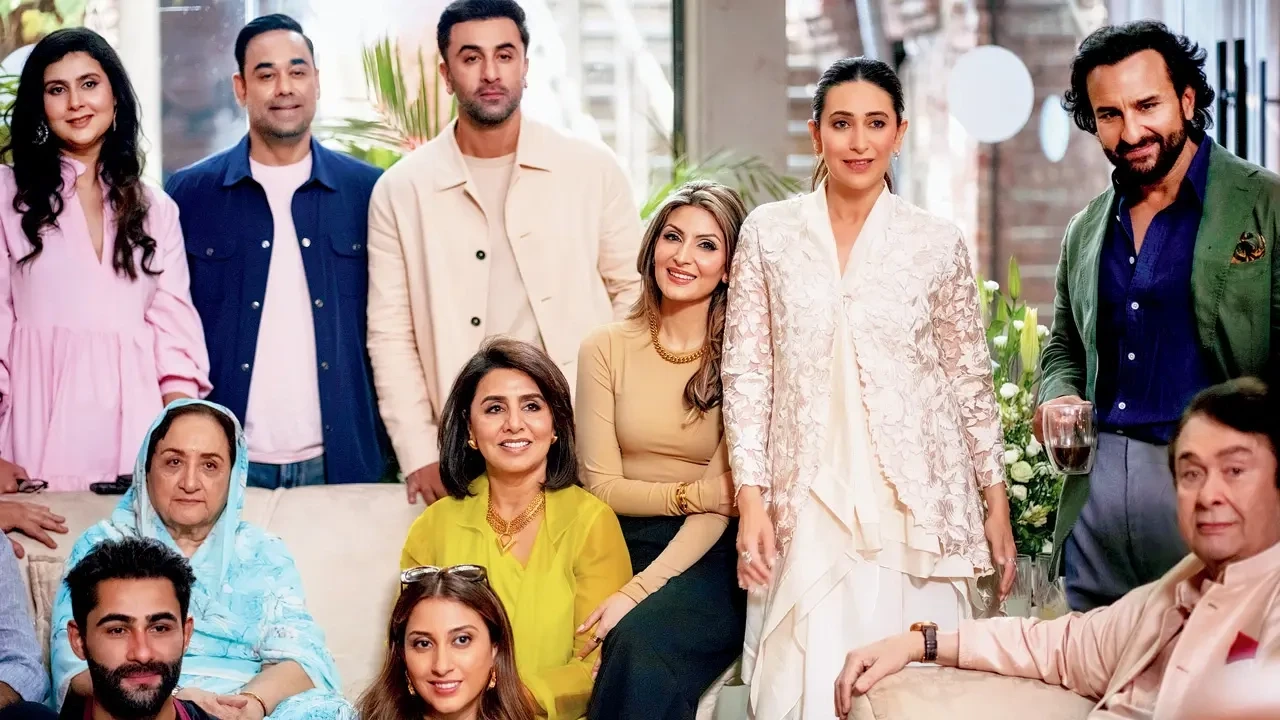Growing up in South Mumbai, Armaan Jain straddled two worlds: the cinematic legacy of his mother’s family, the Kapoors, and the finance-rooted pragmatism of his father’s.
Armaan is the son of Rima Jain, Raj Kapoor’s daughter and sister to Rishi, Rajiv, Ritu and Randhir Kapoor, making him first cousin of Kareena, Karisma, and Ranbir. “Although we had a film family, we didn’t grow up around film sets,” he recalls. “I first went on a shoot when I was 12, just because my friends wanted to see what it was like.”
Jain’s early twenties, however, were dominated by cinema. After deciding at 16 that acting was his path, he spent three to four years at Dharma Productions, learning production and direction. “Your first impression about cinema is the glamour — it’s all smoke. Once you start working, you realise all the hard work that goes into it, and learn to respect the craft.” The exposure to filmmaking proved invaluable later, as he established Aavashyak, a media company.
Jain recalls growing up surrounded by food and family. “My dad’s family is spread across Dubai, London, and other countries, so that meant a lot of travel and big reunions. My mom’s side was classic Kapoor — food, noise, endless get-togethers. For both, food was central.”
Armaan with his maternal grandmother, Krishna Raj Kapoor
His earliest memories are steeped in kitchens. “Both my grandmothers cooked beautifully. From as young as five, I’d sit there for hours watching them. My dad would cook for the whole family — simple, home-style food. Weekends were spent shuttling between homes — some nights with my dadi, some nights with my nani. Those kitchens shaped who I am.”
On his maternal side, the scale was always grand. “Nani would feed everyone — carpenters, relatives, friends — who came home,” Jain recalls. “Food was never just sustenance; it was love, culture, a way to bring everyone together.”
The pandemic gave him the push to bring those flavours to a broader audience. Encouraged by his wife, Anissa Malhotra, he turned to his first love: cooking. “People have always praised my food. Anissa said, ‘Let’s test it out. Take these home recipes and serve them to people.’” By 2021, The Junglee Kitchen was born. Jain cooked and packaged orders while Anissa handled logistics.
Today, The brand has seven outlets, partnering with Bengaluru’s Dil Foods, with plans to scale to 200 outlets within the next two to three years. “I see it as feeding the world, starting with India. The cloud kitchen model offers a reach that a single restaurant never could achieve.”
Armaan Jain
For Jain, the philosophy is straightforward: authenticity above all. The menu is built on generational recipes of dishes made at his grandfather’s home, Deonar Cottage, in Chembur. From kebabs to butter chicken to Junglee Maas and fragrant pulavs, some of these are family’s classics; others are what he has improvised over time. “We balance for vegetarians, health-conscious diners, and younger palates, but the core Kapoor recipes don’t change. The ghee, the richness, the love — that stays,” he adds.
Food isn’t just a business for Jain; it’s a legacy. In his latest project, Dining with the Kapoors, that released on Netflix on Friday, one can witness his emotional attachment to the recipes. The project is life coming a full-circle moment for him. It began as a conversation with his mother around Raj Kapoor’s 100th birthday.
“We were chatting about the old days and we spoke of how food always brought us together — it’s how Indian families connect. I wanted to celebrate him in a way that was intimate, real, and not a documentary, beyond the glamour of cinema, and over one intimate sit-down meal,” says Jain who has played multiple roles — conceptualising, writing, shooting, and producing it. He even took a brief sabbatical from his food business to focus on the film. “Food and cinema aren’t just work for me, they are a part of my DNA. I was born two years after Raj Kapoor died. You only hear stories about him and his love for food and life, projects like this help preserve memories and traditions,” he signs off.
